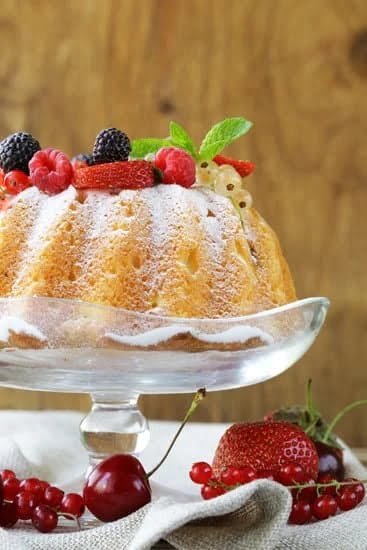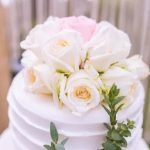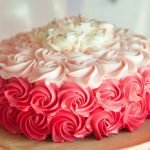Are you looking to learn how to decorate a cake with ganache? Ganache is a versatile and delicious option for decorating cakes, adding a luxurious and professional finish to any dessert. In this article, we will explore the ins and outs of using ganache as a decorating tool, from choosing the right cake to troubleshooting common issues. Whether you’re a beginner or an experienced baker, mastering the art of ganache decoration can take your cakes to the next level.
Ganache is a rich and creamy mixture of chocolate and cream that can be used in a variety of ways, including as a filling, frosting, or decorative element for cakes. It provides a smooth and glossy finish that not only looks impressive but also adds depth and flavor to your cake. Understanding how to work with ganache opens up a world of creative possibilities for any baker.
In this section, we will delve into the basics of ganache, explaining what it is and highlighting its various uses in cake decorating. Additionally, we will provide step-by-step instructions on how to prepare and apply ganache for flawless results. Whether you’re looking to create simple elegance or intricate designs, mastering the use of ganache can elevate your cake decorating skills to new heights.
Choosing the Right Cake
When it comes to decorating a cake with ganache, choosing the right cake is crucial to ensure that the end result is visually appealing and delicious. Different types of cakes work well with ganache, but some are better suited than others.
One important factor to consider when selecting a cake for ganache decoration is its density and texture. A dense and sturdy cake, such as a pound cake or a chocolate fudge cake, provides a solid base for the ganache and prevents it from sinking into the cake or becoming too heavy. On the other hand, light and airy cakes might not be able to support the weight of the ganache and can result in a messy finish.
In addition to texture, flavor is also an important consideration when choosing a cake for ganache decoration. While ganache pairs well with many flavors, it particularly complements rich and decadent cakes like chocolate, red velvet, or coffee-flavored cakes. The deep flavors of these cakes provide an excellent backdrop for the smooth and creamy consistency of the ganache.
It’s also essential to ensure that the cake is level and free from any imperfections before applying the ganache. This provides a smooth surface for decorating and helps achieve a professional-looking finish. By carefully considering these factors when choosing a cake for ganache decoration, you can set yourself up for success in creating a visually stunning and delicious dessert.
| Choosing the Right Cake | Tips |
|---|---|
| Texture | Opt for dense and sturdy cakes |
| Flavor | Choose rich and decadent flavors |
| Cake Surface | Ensure that the cake is level and free from imperfections before applying ganache |
Preparing the Ganache
Ingredients and Equipment
To prepare the perfect ganache for decorating a cake, you will need high-quality chocolate, heavy cream, and a heatproof bowl. The type of chocolate you choose will affect the flavor and consistency of your ganache, so it’s essential to select a good quality brand. Additionally, having a kitchen scale to measure ingredients and a rubber spatula for stirring will make the process easier and more precise.
Step 1: Chop the Chocolate
The first step in making ganache is to chop the chocolate into small, uniform pieces. This will help the chocolate melt evenly when mixed with the hot cream. Use a sharp knife to chop the chocolate or place it in a food processor for quick and consistent results.
Step 2: Heat the Cream
In a small saucepan, heat the heavy cream over medium heat until it just begins to simmer. Be careful not to let it boil, as this can scorch the cream and affect the texture of the ganache. Once heated, pour the cream over the chopped chocolate and let it sit for a few minutes to begin melting the chocolate.
Step 3: Stir Until Smooth
After allowing the hot cream to melt the chocolate for a few minutes, use a rubber spatula to gently stir the mixture until it becomes smooth and glossy. The key is to stir slowly and consistently to ensure that all of the chocolate is fully melted and incorporated with the cream. This will result in a silky-smooth ganache that is perfect for decorating cakes.
These steps outline how to make ganache effectively for cake decoration by following these simple instructions on preparing this versatile and delicious frosting. Whether you are new to baking or an experienced home baker, mastering these techniques can take your cake decorating skills up several notches.
Crumb Coating
Importance of Crumb Coating
The crumb coating serves as a barrier between the cake and the final layer of ganache, ensuring that no crumbs or imperfections are visible in the finished product. Without this initial layer, the final ganache may end up looking uneven or bumpy, detracting from the overall appearance of the cake.
How to Achieve a Smooth Base
To achieve a smooth base for ganache decoration, start by preparing a slightly thinner batch of ganache than what will be used for the final layer. This will make it easier to spread and will help to trap any loose crumbs.
Using an offset spatula, apply a thin layer of ganache to the entire surface of the cake, ensuring that it is evenly distributed. Once applied, refrigerate the cake for a short time to allow the crumb coat to set before proceeding with adding the final layer of ganache.
In summary, crumb coating is an essential step in decorating a cake with ganache as it creates a smooth and even base for the final layer. By following proper techniques, such as using thin ganache and allowing ample time for setting, decorators can ensure that their cakes have flawless finishes that are perfect for adding decorative effects.
Applying Ganache
When it comes to decorating a cake with ganache, the application process is crucial in achieving a professional and polished finish. Follow these techniques to ensure that your ganache-decorated cake looks stunning and impressive:
- Prepare the ganache: Before applying the ganache to your cake, make sure it is at the perfect consistency. It should be smooth, glossy, and easy to spread. If it’s too runny, let it cool for a few minutes before using it. If it’s too thick, gently warm it in the microwave at short intervals until it reaches the desired consistency.
- Use a piping bag: For precision and control, consider using a piping bag to apply the ganache to your cake. This method allows you to create clean lines and evenly distribute the ganache on the surface of the cake.
- Apply in layers: To achieve a smooth and even finish, apply the ganache in thin layers. Start with a crumb coat to seal in any loose crumbs, then add additional layers as needed until the entire cake is covered.
By following these techniques, you can ensure that your ganache-decorated cake has a flawless and professional appearance. Whether you’re making a simple drip cake or covering an entire tiered wedding cake with ganache, these methods will help you achieve beautiful results.
Remember that practice makes perfect when it comes to applying ganache to decorate cakes. Don’t be discouraged if your first attempt doesn’t turn out exactly as planned. With patience and dedication, you’ll master the art of working with ganache and create stunning cakes for any occasion.
Creating Decorative Effects
When it comes to decorating a cake with ganache, there are various tools and methods you can use to create beautiful designs and patterns. Whether you want a simple and elegant look or a more elaborate and intricate design, the right techniques can make all the difference in the final result. Here are some tips for using different tools and methods to create stunning decorative effects with ganache:
1. Piping: One of the most common ways to decorate a cake with ganache is by using piping bags and tips. You can create rosettes, swirls, borders, or even inscriptions using different piping tips. Fill the piping bag with ganache, choose your desired tip, and practice on a piece of parchment paper before decorating your cake.
2. Offset Spatula: An offset spatula is a versatile tool that can be used to create smooth finishes or textured designs on a cake. You can use it to spread ganache evenly on the surface of the cake or for creating swirls and waves for a more artistic touch.
3. Stencils: Stencils are an excellent way to add decorative patterns or images to your ganache-decorated cake. Simply place the stencil on the cake’s surface and gently spread the ganache over it with an offset spatula. Carefully lift off the stencil to reveal the design underneath.
4. Comb Tools: Comb tools are specifically designed for creating textured finishes on cakes. You can use them to achieve smooth lines, ridges, or waves in your ganache decoration. Experiment with different comb shapes and patterns to find the look that suits your cake best.
By incorporating these tools and methods into your cake decorating process, you can elevate your ganache-decorated cakes to new levels of artistry and elegance. Whether you’re aiming for simplicity or intricacy, these techniques will help you achieve a professional and polished finish that will impress any crowd.
Troubleshooting
When it comes to decorating a cake with ganache, there are a few common issues that may arise. Understanding how to troubleshoot these problems can help ensure that your cake turns out beautifully.
One common issue is ganache that is too thin or runny, which can result in a messy and uneven finish on the cake. To fix this, you can let the ganache sit at room temperature until it thickens slightly, or you can refrigerate it for a short period of time to achieve the right consistency.
Another common problem when decorating with ganache is air bubbles forming on the surface of the cake. These bubbles can create an unsightly appearance and mar the smooth finish of the ganache.
To prevent this, you can gently tap the filled and frosted cake on a flat surface to release any trapped air bubbles before the ganache sets. If air bubbles do form, you can use a toothpick to carefully pop them and then smooth over the surface with an offset spatula.
Additionally, some decorators may find that their ganache cracks or becomes dry and crumbly after it has been applied to the cake. This issue can be caused by temperature fluctuations during preparation or improper ratios of cream and chocolate in the ganache.
To remedy this problem, you can try gently heating the ganache in short bursts in the microwave or over a double boiler to soften it and improve its texture. It may also be helpful to stir in additional warm cream or melted butter to rejuvenate the ganache.
Overall, troubleshooting common issues when decorating with ganache requires patience and attention to detail, but by understanding how to fix these problems, you can achieve a professional-looking finish on your cake.
| Troubleshooting Issue | Solution |
|---|---|
| Ganache too thin or runny | Let ganache sit at room temperature or refrigerate for thicker consistency |
| Air bubbles forming on surface of cake | Gently tap filled cake on flat surface before setting; use toothpick to pop air bubbles |
| Ganache cracks or becomes dry and crumbly | Gently heat ganacheto soften; stir in additional warm cream or melted butter |
Finishing Touches
In conclusion, decorating a cake with ganache is a wonderful way to create a professional and polished finish that will impress your friends and family. By following the step-by-step instructions in this article, you can achieve beautiful decorative effects and create a stunning presentation for any special occasion. From selecting the right cake to troubleshooting common issues, you now have all the information you need to successfully decorate a cake with ganache.
After applying the ganache to your cake, it’s time to add the finishing touches and embellishments that will truly make it stand out. Whether you choose to add fresh fruit, edible flowers, or piped buttercream details, there are endless possibilities for making your ganache-decorated cake unique and personalized. With some creativity and attention to detail, you can elevate your cake from delicious to absolutely breathtaking.
The key to success when decorating with ganache is patience and practice. Don’t be discouraged if your first attempt doesn’t turn out exactly as planned – just keep practicing and experimenting with different techniques. Before long, you’ll be creating beautiful ganache-decorated cakes that are sure to impress everyone who sees them. So go ahead and give it a try – you’ll be amazed at how easy and enjoyable it can be to decorate a cake with ganache.
Frequently Asked Questions
Can I Put Ganache Straight Onto Cake?
Yes, you can put ganache straight onto a cake. Once the ganache is made and slightly cooled, it can be poured or spread onto the cake. This will create a delicious and rich coating for the cake.
Can I Use Ganache to Decorate a Cake?
Ganache is a versatile and delicious option for decorating cakes. It can be used to create smooth, glossy finishes or even piped into decorative patterns or borders. The rich flavor of ganache also adds an extra level of indulgence to any cake.
How Long Do You Leave Ganache Before Putting on Cake?
After making ganache, it is important to let it sit at room temperature until it reaches a spreadable consistency. This usually takes about 2-4 hours but may vary depending on the temperature of your kitchen. Once it has reached the right consistency, you can then apply it to your cake.

Welcome to our cake decorating blog! My name is Destiny Flores, and I am the proud owner of a cake decorating business named Cake Karma. Our mission is to provide delicious, beautiful cakes for all occasions. We specialize in creating custom cakes that are tailored specifically to each customer’s individual needs and tastes.





